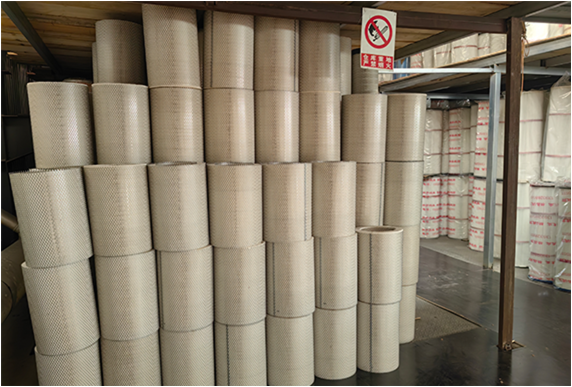 Tel:
+8618931101301
Tel:
+8618931101301
12 月 . 04, 2024 09:37 Back to list
hepa air filter cartridge
The Importance of HEPA Air Filter Cartridges for Clean Air
In recent years, the emphasis on air quality has become increasingly significant, especially in urban areas where pollution levels have risen dramatically. Among various solutions available for improving indoor air quality, HEPA (High-Efficiency Particulate Air) filters have emerged as a leading choice. This article explores the advantages, applications, and importance of HEPA air filter cartridges in maintaining healthy living and working environments.
What is a HEPA Filter?
A HEPA filter is defined by its ability to capture at least 99.97% of airborne particles that are 0.3 microns in diameter. This includes dust, pollen, pet dander, mold spores, and even smoke particles. The technology originated during World War II, primarily to protect humans from hazardous radioactive particles. Since then, HEPA filters have evolved and gained popularity in various applications thanks to their efficiency in cleaning the air.
How HEPA Filters Work
The effectiveness of HEPA filters lies in their design and the materials used. Typically made from a mat of randomly arranged fibers, HEPA filters create a labyrinth for airborne particles. As air passes through, particles collide with these fibers and are trapped. This process consists of three key mechanisms inertial impaction, interception, and diffusion. Each mechanism works synergistically, ensuring that even the smallest particles are filtered out.
Applications of HEPA Air Filter Cartridges
HEPA air filter cartridges are used in various settings, including residential homes, offices, hospitals, transportation systems, and industrial facilities. Here are some specific examples
1. Residential Use Many homeowners install HEPA filters in their HVAC systems to maintain clean indoor air and reduce allergens. Portable air purifiers also utilize HEPA filters, providing a targeted approach to air quality improvement in specific rooms.
2. Healthcare Settings In hospitals and clinics, HEPA filters are crucial for infection control. They help prevent the spread of airborne pathogens, such as viruses and bacteria, safeguarding patients and healthcare workers.
3. Commercial Spaces Offices and retail environments benefit from HEPA filtration systems that enhance the comfort and health of employees and customers alike. Improved air quality can lead to increased productivity and a more pleasant shopping experience.
4. Transportation Modern vehicles, including buses, trains, and airplanes, often incorporate HEPA filters into their ventilation systems. This ensures that passengers breathe cleaner air during their travels, reducing the risk of airborne illnesses.
hepa air filter cartridge

Benefits of HEPA Air Filter Cartridges
The advantages of using HEPA air filter cartridges are numerous
- Enhanced Air Quality The primary benefit is the significant improvement in indoor air quality. By capturing harmful particles, HEPA filters reduce allergies and respiratory issues.
- Odor Reduction While HEPA filters primarily target particles, many setups include additional layers, such as activated carbon, to absorb and eliminate odors.
- Protection Against Airborne Diseases In spaces where vulnerable populations reside, such as hospitals or nursing homes, HEPA filters play a critical role in disease prevention.
- Energy Efficiency Many modern HEPA filter systems are designed to operate with minimal airflow resistance, ensuring that air handling systems do not consume excessive energy.
Maintenance of HEPA Filters
To maintain optimal performance, HEPA air filter cartridges should be replaced regularly, typically every six months to a year, depending on usage and environmental conditions. Some systems come with indicator lights to signal when a filter change is necessary. Regular maintenance not only prolongs the life of the filter but also ensures that it continues to operate effectively.
Conclusion
In conclusion, HEPA air filter cartridges are indispensable tools for enhancing air quality across diverse settings. Their ability to capture a myriad of airborne pollutants makes them essential for improving health and well-being. As we grow increasingly aware of the importance of clean air, investing in HEPA filters is a proactive step toward ensuring a healthier environment for ourselves and future generations. Whether in our homes, workplaces, or public transport, HEPA filters will continue to play a critical role in our quest for clean air.
-
How to choose a high-efficiency air filter? Here comes a professional guideNewsOct.21,2024
-
Air filter: multi-field application, protecting fresh airNewsOct.17,2024
-
Carbon air filter: a green guard to protect air qualityNewsOct.16,2024
-
Can activated carbon completely remove indoor odors and pollutants in air purification?NewsOct.14,2024
-
How to filter air efficiently and ensure indoor air quality?NewsOct.12,2024
-
Activated carbon filter: the invisible guard of clean water lifeNewsOct.11,2024

 Email:
Email:





